|
Chianti Crime
It was undoubtedly due to the current Covid 19 crisis that attendances at this year’s Chianti Crime Festival were rather disappointing, particularly for my keynote speech on the nuances of translating Neapolitan dialect into mainstream Italian.

Which was a pity as this year’s event, sponsored once again by the Chianti producers of Tuscany, took place in the delightful town of Fiesole in the hills overlooking Florence. Strict adherence to the social distancing rule of not more than one delegate per restaurant and the liberal application of hand sanitizer made the Festival possible, although the atmosphere was somewhat subdued. The traditional call for discussion papers – outlines presented on the backs of menus – did, however, bode well for next year’s event, at a venue still to be decided.
September Harvest
This month is expected to see a bumper harvest of new books given the number of titles delayed by the Covid plague and warehouses and distributors shifting the backlog which built up when staff were furloughed. One rumour suggested that 300 new titles would be published on 3rd September alone.
I am aware of at least 35 new crime and thriller titles arriving this month, although perhaps I should say at the very least for that it likely to be a conservative estimate. Information from publishing houses has been scant this year, even from those who have not got me on a blacklist and I am aware that Joe Lansdale, Yrsa Sigurdardóttir, John Connolly and Jasper Fforde may have had new books out this summer and Robert Harris, John Grisham and Nicola Upson have new titles this autumn. Sadly, and with apologies to those authors and no doubt many others, I know nothing about them.
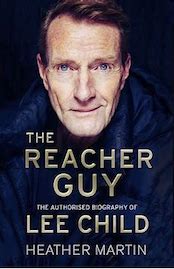
One book still on target for release on St Michael’s Day is Heather Martin’s biography of Lee Child, The Reacher Guy [Constable], which I am sure will be a truthful, accurate and sensitive portrayal of the most successful thriller writer of the last quarter century. In fact, I know it will be a truthful account as I was not consulted in any way during the writing process…
Sadly, the extravagant launch party planned for the book’s launch in London’s once humming and vibrant Soho, has had to be postponed until 2021.
All Our Yesterdays
Looking back twenty-five years, partly because there’s nothing better to do, I discover that my Daily Telegraph Crime Guide (for younger readers, the Daily Telegraph was a once great newspaper which used to review crime fiction) contained a shameless plug for the forthcoming Bouchercon Convention to be held in Nottingham, at which my old contubernalis Colin Dexter was to be guest of honour.
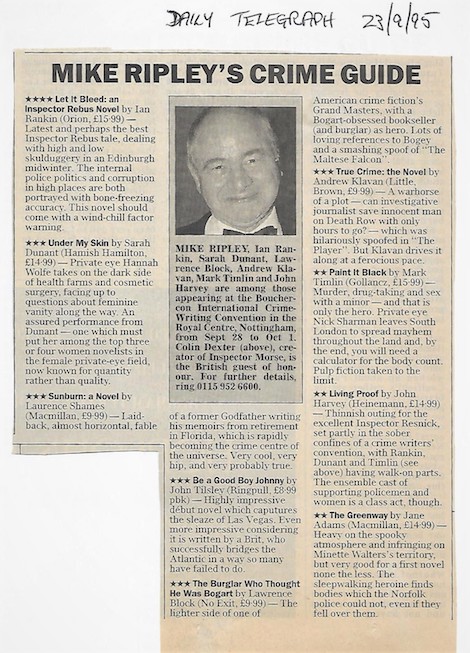
Most of the books I reviewed in that 23rd September column were by authors who would also feature at that Bouchercon, and some of them I actually remember (albeit vaguely) seeing there.
In my column I picked out Ian Rankin’s Let It Bleed as his ‘latest and perhaps best’ Inspector Rebus tale and raved about Sarah Dunant’s latest Hannah Wolfe novel. Sadly, Sarah has turned away from the dark side and established an alternate career as a historical novelist which requires her to live in Florence, poor dear.
I enjoyed the latest offerings by American stalwarts Laurence Shames and Lawrence Block, a debut by Jane Adams, and a superior piece of ‘pulp fiction taken to the limit’ by Mark Timlin. I also noted that the new John Harvey, Living Proof, was set ‘in the sober confines of a crime writers’ convention’ in which Ian Rankin, Sarah Dunant and Mark Timlin all had walk on parts. Enough said.
In Like Flynn
Fans of author Brian Flynn (1885-1958) who thought their cup had run over last year when those irrepressible chaps round at the Dean Street Press reissued not one, but ten, of his ‘Anthony Bathurst’ detective novels, had better sit down and take a deep breath for another ten are on their way in early October.
 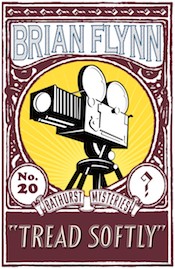
For those who care about such things, the next tranche of Flynn titles, all with Dean Street’s trademark flamboyant covers, represent books 11 to 20 in the series and were originally published between 1932 and 1937. I am afraid I know little of Brian Flynn and his fiction other than that one authoritative source suggests that Tread Softly was perhaps his finest work, but I am conscious of the fact that another thirty Bathurst books are lurking in the wings for those who simply cannot get enough.
The Ludlum Identity
It is difficult these days not to read the continuing adventures of Robert Ludlum’s action hero Jason Bourne through the prism of Paul Greengrass’s breathlessly exciting films, but if you ever needed proof that you can’t keep a good character down, think on the fact that there have been four times as many Bourne books published since his death than the author actually wrote.
Whilst researching my prize-winning (I may have mentioned that before) book on thrillers, Kiss Kiss Bang Bang, I had the pleasure of a long trans-Atlantic conversation with Robert Ludlum’s charming agent (and film producer) Henry Morrison. In attempting to explain the huge success of Ludlum as a thriller writer, and Jason Bourne in particular, he offered some friendly advice: go back to the original books.
.jpg) 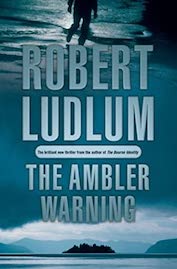
I will certainly follow Mr Morrison’s instructions but in the meantime have enjoyed Brian Freeman’s accomplished first take on the franchise, The Bourne Evolution, published here by Head of Zeus, the opening fifty pages of which contain enough trademark Bourne action to have Paul Greengrass reaching for his storyboards.
As an added bonus, I have learned that there was a Robert Ludlum title which I had never come across before, but whose title made me sit up and take notice. I believe that The Ambler Warning was completed, though I do not know by whom, after Robert Ludlum’s death in 2001, being first published here by Orion in 2005.
It has probably nothing whatsoever to do with Eric Ambler, but I am taken with the idea that there should be an Ambler Warning issued to anyone who has never read an Eric Ambler.
Getting the Crimeband Back Together
I am pleased that at least two people were paying attention last month when I mentioned the rather neglected imprint Panther Crimeband which flourished all too briefly in the 1960s but included titles from some amazing authors. I am grateful to one correspondent for the information that there was a Crimeband edition of John Bingham’s My Name Is Michael Sibley, originally published in 1952.
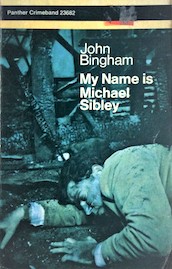
This is a book every mystery buff should have read, partly because it was one of the first crime novels to admit that British police were not perfect but also because the author was a senior member of MI5 and, at one time, the immediate boss and mentor of a young novelist now known as John Le Carré. It is also very good and I believe there is an edition (with an introduction by Le Carré) still in print. A recent German edition had the title which translates as Why Did You Lie, Sir? and I think George Smiley (for whom Bingham may have been a model) would have liked the politeness of that.
As an aside to all things Le Carré, now that I’ve mentioned him, I finally managed (thanks to Talking Pictures TV on Channel 81) to view, fifty years after its release, the film version of his 1965 novel The Looking Glass War. I am not sure it was worth the wait.
Ralph Richardson and Anthony Hopkins are, as one would expect, excellent but the doomed spy sent into East Germany with a dodgy radio (‘old school’ technology even in those days) who is the pivot of the action was played by Christopher Jones – and here I finally get to say ‘No, me neither’.
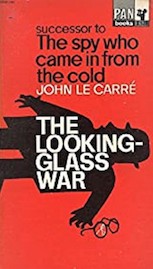
Another mystery is why the character of George Smiley was expunged from the film, though his small but vital role in the plot was assumed by that great Irish actor Ray McAnally as an un-named man from the Ministry.
Unavoidable delays and Disappointments
I have attempted to keep readers informed of changes to publishing schedules caused by lockdown, whenever publishers have bothered to tell me when eagerly-awaited new titles have been rescheduled.
It is with mixed feelings that I have to report that the new Ken Bruen novel, A Galway Epiphany [Head of Zeus] has been put back from October this year until April 2021. This not only means a gap in my Autumn reading schedule, but also the absence of the large bottle of fine Irish whiskey I normally receive when I mention there is a new Ken Bruen out.
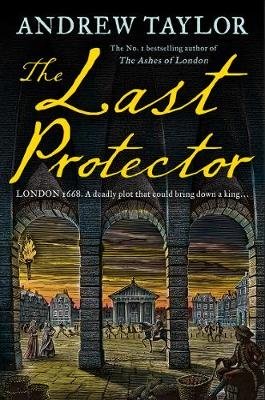
I wish I could blame the Covid 19 lockdown and associated disruption to life as we knew it for failing to mention the latest historical mystery, set in 1688, by Andrew Taylor, The Last Protector [HarperCollins], but I cannot. The book came out in April on schedule and I managed to miss it completely, though in my defence I was not told anything about it by the publisher and Andrew Taylor is far too modest and polite to resort to the usual methods of achieving publicity (blackmail, threats of violence, offers of strong drink) employed by other authors accidentally overlooked. However, a copy has now arrived via a despatch rider who had managed to avoid the highwaymen and cut-purses lurking on the King’s highway and I am looking forward to reading it. I am sure it will prove my theory that it is not only Hilary Mantel who can write convincingly about someone called Cromwell, though in The Last Protector it is neither Thomas nor Oliver.
Disappointments Averted
I was shaken to the core and had to resort to my dwindling supply of the finest malt liquor, when I discovered, quite by chance, that Vaseem Khan had a new novel, launching a new series character, to be published that very week.
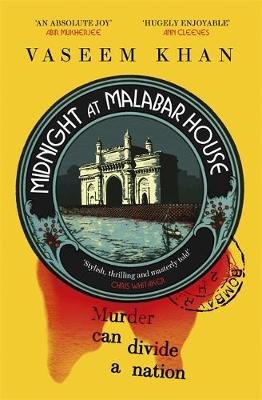
Fortunately, my screams of anguish, threatening emails and obscene telephone calls were heard as far away as the Victoria Embankment and a copy of Midnight At Malabar House arrived only two days after publication on 20th August.
And I do have to report a slight disappointment, as Vass’ new novel does not feature Baby Ganesh, surely the best adolescent elephant detective in all crime fiction. On the upside, however, he has given us a fabulous new protagonist in the form of Inspector Persis Wadia, the first female police detective in a newly independent India, based (literally: in the basement) of Malabar House, Bombay.
Late on New Year’s Eve 1949, having drawn the lonely night shift, Persis takes a career-making, or breaking, telephone report concerning the murder of a prominent English diplomat, Sir James Herriot. (I know, I’m from Yorkshire and we’ve all wanted to murder that bloody vet at one time or another…)
Not only has Sir James been, it seems, professionally stabbed to death, but his body is found minus his trousers and clues from the orderly state of his office desk to mysterious messages in code, abound. Despite the obstructions put in her way by the violent aftermath of colonial rule, the Indian caste system and religious differences (both neatly explained), as well as general antagonism towards a woman doing man’s job for the first time, Persis’ indomitable spirit sees her through the investigation.
No one could dislike a woman whose favourite Chinese restaurant is called the Dancing Stomach and the villains should be aware that she scored 96% accuracy with her pistol shooting at the police academy, even if that missing 4% might turn out to be vital for one of the characters.
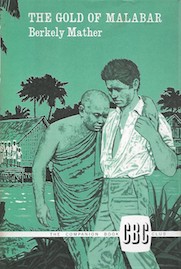
Midnight At Malabar House is a delightful, joyous introduction to what promises to be an excellent series and it means that I now have two novels which have ‘Malabar’ in the title.
|
|
Books of the Month
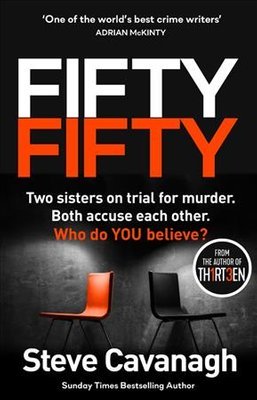
Almost thirty years ago, crime writer and reviewer Mark Timlin recommended as ‘rather good’ a debut legal thriller by an unknown American called John Grisham. I remember thinking at the time that I was not one for legal thrillers – Cyril Hare and the divine Sarah Caudwell excepted – and Perry Mason had passed me by completely, but I took Mark’s advice and, sure enough, he was on to something, as indeed was John Grisham.
It has always slightly puzzled me why American legal thrillers should be so popular in this country, but there is no doubting the high drama of courtroom showdowns between lawyers and/or judges which are the equivalent of the climactic gunfight in a western movie.
I have, however, no reservations when it comes to the inner workings of American jurisprudence as described by Belfast-born lawyer Steve Cavanagh. His latest, Fifty Fifty features his regular hero, conman-turned-lawyer (surely some tautology there?) Eddie Flynn defending (as usual) a case of gruesome murder for which two sisters are on trial, there being a 50/50 chance as to which one actually did it.
With the judge and the prosecuting attorney against him, and one sister represented by another smart lawyer determined to prove his client guilty and hers innocent, Eddie has his work cut out, but with his usual courtroom savvy and a little help from Clarence Darrow, comes through, but can he be sure he has been on the side of the angels?
Fifty Fifty is written with a pace that grips the reader from the off, and only afterwards does the reader worry about a legal system which allows a sadistic killer to roam free on bail for several months to eliminate witnesses (at least five of them) like a black-clad, motor-bike riding Valkyrie.
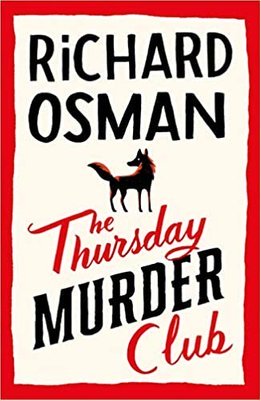
I had so wanted to tell you that reading Richard Osman’s debut crime novel The Thursday Murder Club [Viking] was a pointless exercise. Surely the man has it all already: a successful career as a television executive, another one as a comedy performer, he doesn’t have to stand on a chair to change a lightbulb and Fulham are back in the Premiership. So encouraging him to be successful in yet another sphere seems, well, pointless, or it would if The Thursday Murder Club was not such a joyous romp through the tropes of the quintessentially English detective story set in a luxury retirement village in Kent with four of its residents meeting every Thursday to discuss cold cases and then suddenly a very warm one which comes close to home.
Centre stage is the elderly Joyce, who narrates with a mixture of homespun philosophy and retail wisecracks (on cooking chicken and rice: ‘The chicken was Waitrose, the rice Aldi.’) There is a vegan café called, wonderfully, Anything With A Pulse and the Murder Club gives an object lesson in how to interrogate and intimidate a senior police officer armed with nothing more than slices of homemade lemon drizzle cake.
The plot becomes, as tradition demands, as deceptively complex as Joyce’s recipes are simple and homely, and both are a source of pure enjoyment.
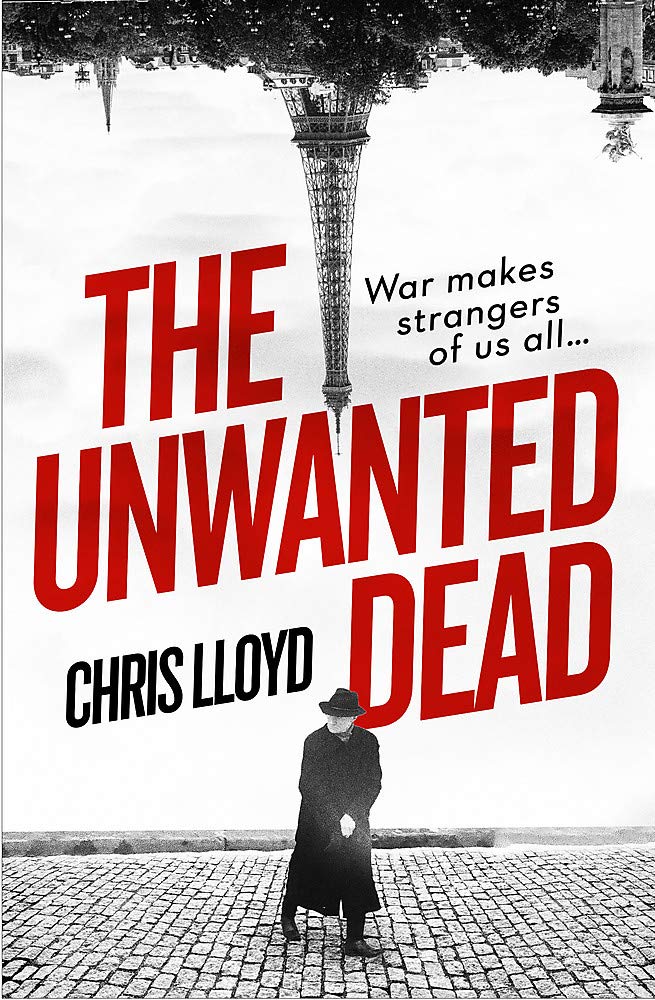
A couple of years ago, that maestro of the historical mystery Andrew Taylor (who has more Historical Daggers than the Game of Thrones prop store) asked my opinion on which would be the next popular period for historical mysteries. My answer was World War II and I mention this not only because I was flattered that Andrew Taylor would seek my advice (which I was) but because I reckon my prediction was accurate. Off the top of my head I can think of recent, or forthcoming, titles set in and around the war by Philip Kerr (sadly posthumously), Ben Pastor, Graham Hurley, Rory Clements, Simon Scarrow, Jim Kelly, Robert Harris and now, a new name on me, Chris Lloyd.
The Unwanted Dead [Orion] opens on the day the Germans entered Paris in 1940 (they wore grey) and with the discovery in a railway siding of four men murdered by gas possibly left over from the First World War. Almost immediately there is a tragic (very tragic) suicide of a Polish refugee and dark hints of how the Nazis are ‘cleansing’ occupied Poland. Charged with connecting the dots, whilst trying to operate under German occupation, is Parisian police detective Eddie Giral, who has flashbacks to his military service in WWI and to a less salubrious life in the Paris of the 1920s, not to mention having to cope with his wayward son who is determined to resist the invaders, as is Giral but in his own way, which mostly involves acting like a private eye rather than a policeman and going straight for the china shop like an angry bull. Fortunately, there is an attractive female American journalist on hand to help out.
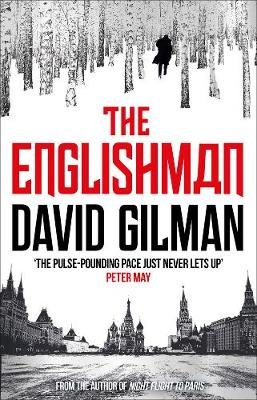
For legal reasons I was unable to mention The Englishman by David Gilman [Head of Zeus] when it was published in early July, despite having heard there was something of a ‘buzz’ about it.
The Englishman of the title, Dan Raglan, is ex Foreign Legion and the sort of hard man who sets his own broken nose and prefers to sew up knife wounds himself rather than see a doctor. He’s no James Bond, though he does seem to be licensed to kill by Her Majesty’s Secret Service and most of the females who meet him end up either in his bed or in the morgue, and he lacks the animal magnetism of a Jack Reacher. But, having said that, he’s probably the right man for this job, which involves kidnapping, torture, Middle Eastern terrorism and Russian gangsters. The setting is mostly London, with an exciting prelude of a military operation against Al Qaeda in Mali and a conclusion which involves Raglan infiltrating a Russian penal colony in the Urals on a mission of revenge. Along the way there are numerous references to Europol, Eurostar and Eurozone; all reminders of happier times…
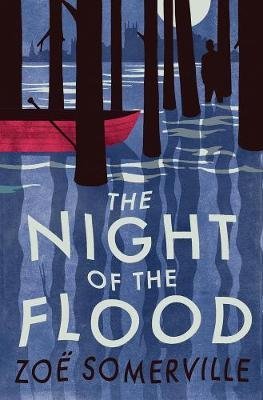
The words ‘literary thriller’ always make me want to reach for my Browning, to misquote an infamous source, and to describe Zoë Somerville’s debut novel as ‘an atmospheric literary thriller’ does it a disservice, though, to be fair, the climax set amidst the disastrous East Anglian tidal floods of 1953 is very atmospheric.
The Night of the Flood [Head of Zeus] flirts with a sub-plot of espionage and there is, eventually, a violent death, but at its heart is the story of an ill-fated love triangle involving three not terribly sympathetic people, with a much more interesting minor character forming a fourth side to the triangle. Where it scores is in its observation of the daily lives and attitudes of an isolated north Norfolk coastal community still weary from the second world war, as an American air force base is established nearby increasing the prevailing paranoia about the Cold War turning into a hot nuclear war.
Zoë Somerville is a graduate of the Creative Writing course at Bath Spa university, as indeed is Kate Medina.
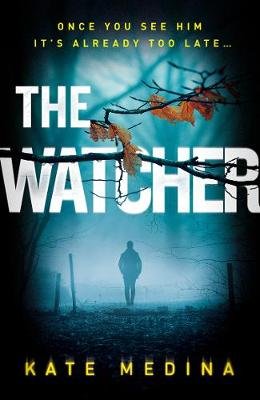
There is no doubt that, from the off, Kate Medina’s The Watcher [HarperCollins] is a thriller. It begins with a brutal home invasion and murder in a modern Sussex mansion showing more money than taste, which could have featured on Grand Designs. There is one body floating in the glass-sided swimming pool and another strapped to a chair in order for unspeakable thing to be done to him.
Clearly we are in serial killer of psycho territory and so psychologist Jessie Flynn is called in to assist the oddly nick-named Detective Inspector ‘Marilyn’ Simmons. There are more murders, the rather reckless use of a stun gun and enough twisted motives to keep our profiler heroine, and the reader, guessing but the plot really revolves around a dog who did – or did not – bark in the night.
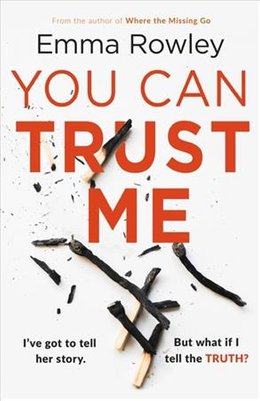
The main character in Emma Rowley’s You Can Trust Me [Orion] is a wife and mother with a ‘perfect’ life, so perfect she has made a career showing it off on the internet as an ‘influencer’. Now I had no idea what an ‘influencer’ was (and still don’t) but it quickly becomes clear when a ghost writer turns up to write her life story that we may have more than one unreliable narrator on the premises.
Emma Rowley does a fine job leading the reader through a tale of lost and deliberately blanked-out memories of nasty things from the past coming back to haunt the influencer’s idyllic and well-controlled middle-class life and for a time it seems the term ‘ghost writer’ could not be more apt.
No Horses Actually Involved
I am truly delighted to hear that Serpent’s Tail are to publish a new edition of Horace McCoy’s noir masterpiece They Shoot Horses, Don’t They? Even though it will never replace my treasured green Penguin edition which I have owned for fifty years. (Okay, so I’m an old and eccentric pensioner, but you’ll only prise my vintage paperbacks from my cold, dead hand.)
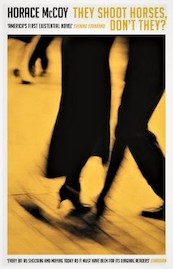 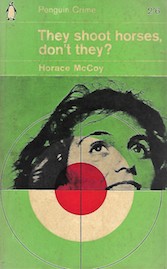
Once again I mount my pulpit to preach to the unconverted. Horace McCoy, in the 1930s, was one of the ‘hard-boilers’ whose influence can still be seen in today’s American crime fiction. I would recommend either of the two other titles in my library.
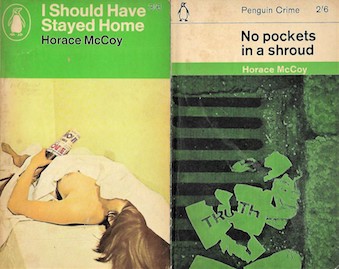
But you’ll have to find your own copies, you ain’t having mine.
So, Mr Bond…
An American reader has informed me of an interesting item of film memorabilia being offered by Heritage Auctions, a poster highlighting fifty years of villains in James Bond films.
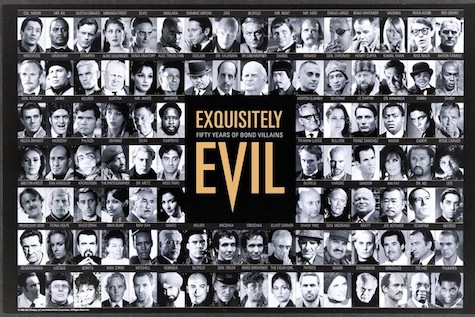
One wag has already suggested that the poster actually shows the ruling politburo of the Crime Writers Association, another that it reveals the identities of the secret cabal of journalists who review crime fiction (sometimes known as the Unilluminati) and a third has noted the omission of the greatest Bond villain, Kevin McClory.
Tether’s End
For the sake of national unity and general harmony, I have refrained from using this ‘platform’ (as the young people might call it, although all Platforms should come with a number, such as 9¾), from which to rant and rave about inconsistent government policy and the idiotic journalistic coverage of it during the current Covid 19 crisis, but I can remain silent no longer. My tether is at an end.
Testing, not testing, ‘apps’ (whatever they are), A-level results, university admissions, enforced quarantines, British tourists fleeing France (ironically many via Dunkirk), businesses failing, pubs being shut and for some reason, Aston Villa staying in the Premiership when plucky Norwich City could not. With all this I can, and have, put up but recently I have fumed like a volcano at the disgraceful conduct of BBC Radio 4 – words I never thought I would type.
In August, in the space of 24 hours, I was twice appalled by what my ears could hardly believe.
Firstly, on Pick of the Week the presenter, a qualified medical doctor and a Guardian journalist (she knows who she is) admitted publicly and seemingly without shame that she had never heard of Joyce Grenfell! And this on Radio 4, for goodness sake!
I had to retire to my chaise-longue, or ‘fainting couch’ as it is known domestically, at such a revelation, but worse was to come the following day when a Radio 4 announcer introduced a writer who had won the Somerset Morgan Award.
In protest I retuned the wireless to something called Radio 5, a station based, as far as I could tell, some miles north of Waitrose, but not for long.
Pip! Pip!
The Ripster
|